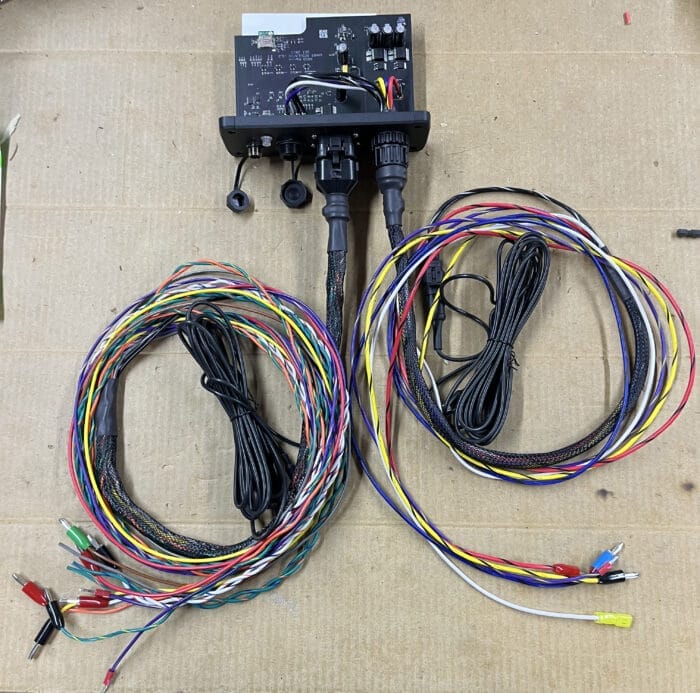
I recently received a link to this forum thread on lithium batteries that includes a concerning quote:
Another note, during installation, there is a yellow and black wire on the Zeus alternator harness, “ALT GND” which is for a ground of the Zeus to the Alternator.
In some installations, this has caused a ground loop, so we are advising to not connect this wire during installation and simply tuck it away.
This is a serious smoking gun. Designing any electronic device with two grounded lines—connection to the negative in the case of boats—is poor practice and, further, being advised not to connect a wire that was provided for in the design is an indication of potential problems that will, I’m guessing, only get fixed with a hardware redesign of the Zeus.
Read on for why.

Hi John,
This is a very interesting observation, especially because it makes me doubt how well educated the people behind it is… Not knowing that connections in different places might lead to problems, (pun intended), is bad.
The explanation for putting the shunt on the positive side of the battery must be a bad excuse for using a not normal solution, for some other reason. I can’t bring myself to think they actually believe that it’s more precise.
Hi Stein,
Good point. That said, I’m not that surprised. ARCO is primarily a maker of OEM replacement parts for outboards (starters, alternators, etc) and, as far as I can see, have never before taken on a device with sophisticated electronics in it. This is one of the many reasons I was sceptical about the Zeus right from the start.
Any chance anyone has confirmed that there is a ground loop problem? I asked Arco’s tech support and they said it’s used for N vs P type alternators. Also, they have an optional 2nd. alternator shunt that their wiring diagram shows being installed on the alternator positive side to measure output. The primary shunt is shown installed as you normally would on the negative side. Does that change your thinking on the shunt? I don’t have an allegiance to either brand, just trying to understand the issue.
Hi Mathew,
No none of that changes my thinking. Anyone with an ohm meter can verify the ground loop problem. Also, I’m hearing disturbing reports of the Zeus blowing up in multiple situations. But even if none of that were happening I would not buy a Zeus or at least not yet: https://www.morganscloud.com/jhhtips/dont-buy-generation-one-electronics/
Hi John,
Dreaming Wet over at Sailing Anarchy just posted a problem with the Zeus’ NMEA2000 PGNs. https://forums.sailinganarchy.com/threads/arco-zeus-regulator-warning.249113/
Whitall
Hi Whitall,
Thanks for the link. That’s disturbing indeed and if it’s true—bet it is since I have insider information on what’s causing this— that indicates a very badly designed product that was rushed to market. In the early days of NMEA 2000, devices that screwed the network up were common, I think, but today there really is no excuse. I think this is the result of a company (ARCO) that had never in their history designed anything remotely complicated getting way ahead of themselves. In fact I was told by a credible source that all ARCO’s earlier products were built and designed by sub contractors in China.
Thanks for the heads up.
Hi again Whitall,
I just read that entry at SA again and note this quote:
I’m pretty sure the voltage spikes are the result of poor hardware design, and specifically the ground loop built into the Zeus. If I’m right, that means no firmware upgrade will fix this, only replacing the hardware with a completely redesigned unit: https://www.morganscloud.com/jhhtips/dont-buy-generation-one-electronics/
That thread over at S. A. has been updated. Sounds like there is a firmware update so at least the Zeus will function again, but the NMEA connectivity still unaddressed. Feels like your hunch is correct.
Hi Whitall,
Thanks for the update. I took a look and it does seem that way. Not a time I wanted to be right. I hope ARCO do the right thing and provide the upgraded hardware for free, but I fear not.